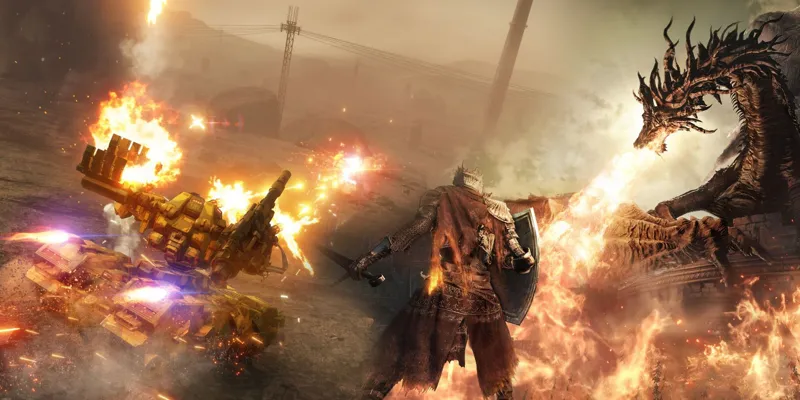When we delve into FromSoftware's array of modern action games, it's evident that Dark Souls and Armored Core deviate significantly from the studio's usual offerings. These two franchises provide valuable insights into how FromSoftware manages its intellectual properties differently compared to other major game developers, and how a game like Dark Souls has shaped the studio's game design philosophy and franchise development approach.
FromSoftware has gained renown for maintaining a consistent design ethos across its titles, particularly in the era post-Demon's Souls under Miyazaki's leadership. Since the advent of Demon's Souls, FromSoftware has been synonymous with the 'Soulslike' genre: action RPGs characterized by deliberate, high-stakes third-person melee combat, punishing difficulty, and enigmatic, nonlinear narratives. This 'Souls' label has extended to FromSoftware's other non-Souls games like Bloodborne, Sekiro: Shadows Die Twice, and Elden Ring. Interestingly, despite this branding, FromSoftware has focused more on standalone titles rather than building multi-game franchises, with Dark Souls and Armored Core being the only series to receive direct sequels in recent console generations.
Armored Core and Dark Souls: Flagship Series
Over time, the likelihood of a sequel for a game like Bloodborne seems to diminish. While many fans eagerly anticipate Bloodborne 2, it is essential for FromSoftware to preserve its creative liberty and concentrate on innovative concepts, recognizing that not every successful game necessitates a follow-up. The same holds true for potential sequels to Sekiro and Elden Ring, which, as of now, remain unconfirmed.
This approach is somewhat uncommon in the AAA gaming sphere. Typically, the success of titles like Bloodborne or Sekiro would guarantee a sequel. However, FromSoftware refrains from committing to direct continuations of its major releases. While an Elden Ring sequel appears more feasible than one for Bloodborne or Sekiro, it wouldn't be surprising if Elden Ring 2 never materializes.
Factors Behind Dark Souls and Armored Core Sequels
Back in 1997, Armored Core made a splash, appealing to a substantial mech enthusiast community with its thematic narrative, fast-paced battles, and pioneering customization. FromSoftware evidently believed in the series' potential for growth in terms of both design and commercial success. The backing of major entities like Sony, the games' publisher, played a pivotal role in sustaining Armored Core's longevity. The emergence of Armored Core 6: Fires of Rubicon a decade after the last installment, without a pressing financial need to revive the franchise—given FromSoftware's exponential growth sans modern Armored Core—underscores a strong creative impetus behind keeping Armored Core alive.
The prolonged release cycle of Dark Souls likely stems from a blend of creative and financial motivations. Following the cult success of Demon's Souls on the PS3, Bandai Namco proposed a similar multi-platform game, which led to the inception of Dark Souls. The series' expansion was driven not only by its deep lore and narrative potential but also by its unforeseen triumph, prompting the involved parties to capitalize on its popularity. As FromSoftware evolved into a distinguished, diversified brand known for its iconic style, Dark Souls' pace has slowed, with its legacy carried forward primarily by successors like Elden Ring.

